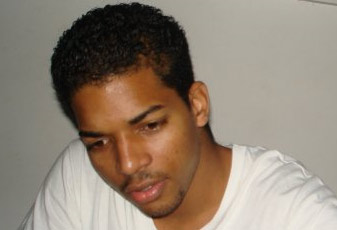What the hell just happened there?! The Jamaican tourism industry is in the doldrums – except for the golden ray of increased visitors from Canada and then WHAM! A young Jamaican man boards a Canadian flight stopped over in Montego Bay en route to Cuba with about 170 passengers and crew onboard, in an attempt to hijack the same flight to Cuba.
Crazy. “They” started saying 21-year-old Stephen Fray who made his way through airport security and onto the CanJet aircraft with a gun, was a “mad man” and a “troubled man” immediately the news hit the airwaves.
It turns out he is from a middle class family in the resort city with strong ties to the tourism industry and was assisted in his escapade by the fact that the Sangster International Airport does not have armed security personnel.
Unlike when things go bad and the security forces are called into depressed communities where there are no international cameras and no tourist lives to protect, the negotiators to end the crisis included no less than the prime minister, Bruce Golding.
According to media reports, after the perpetrator released the passengers and one crew member, holding only the remaining crew of seven on board, negotiations proceeded, aided by his father and other family members. But when this failed the police force’s anti-terrorism squad boarded the plane and ended the crisis without any gunfight or injuries.

The kudos have been coming in from all quarters from Golding and his Canadian counterpart Stephen Harper, who was being hosted following the just concluded Summit of the Americas in Trinidad, to the Jamaican Leader of the Opposition, Portia Simpson-Miller and others.
“In fairness to the island’s airports, they have been managed effectively in terms of these types of (security) implications,” Golding said at a news conference following the end of the crisis Monday.
“This is simply a day of great gratitude, and how delighted we are at how it has turned out,” Harper was shown saying on TV at the same news conference.
“The handling of the situation by members of the security forces confirms that, when given the proper resources and training, they can be compared among the best in the world,” declared Peter Bunting the opposition spokesman on national security, in a media statement.
Only St Kitts and Nevis Prime Minister Dr Denzil Douglas chairman of the Regional Security System addressed the issue with the seriousness it deserves: “I think this tells us that there is much work that we have to do in the Caribbean with regard to our security.”
Apart from the 1,700 a year murder rate (about a dozen people were killed over the Easter weekend alone), Jamaica is a huge security problem waiting to explode. The country has been hijacked by indiscipline and corruption that is at the centre of the economic malaise and criminality across classes.
The revelation by Minister of Housing, Dr Horace Chang that 25 per cent of the island’s population of 2.7 million are squatters and the expression of surprise by the opposition demonstrate the magnitude of the problem with which the country has to grapple as it confronts crime and lawlessness.
Chang, the Member of Parliament for North West St. James that includes Montego Bay, by his comments, to a Gleaner Editor’s Forum in 2003 indicated that he understood the conundrum. Seventeen of Montego Bay’s 19 squatter settlements are in his constituency and he identified said that in addition to not contributing to the land tax pool, these informal communities put a major strain on the city’s resources in regards to overcrowded schools and inadequate social services.
Apart from the stealing of electricity and water through illegal connections, the communities are gun-protected garrisons which even the police are cautious to enter, let alone agents of the municipality and the utilities. The Gleaner of April 16, 2006, in relating the security problems which the squatter slums caused Montego Bay, reported that 80 per cent of the parish’s homicides occurred within their boundaries.
Politicians who are gifted with such baskets of votes are wont to take the correct measures to address the illegal land occupation. So that rather than a national social policy to address landlessness, squatters are generally accommodated through “upgrading” by the pavement of roads and the granting of official political status.
The occupation of Crown (State) or private land is usually in environmentally sensitive areas such as water sheds and forests or in urban locations which obstruct future planning and development.
The Flankers community epitomises the urban squatter settlement sitting as it does along a water course and adjacent to the Sangster Airport. A hotbed of criminality at the arrival gates of the tourism industry, contractors working on airport improvements are forced to hire gun slingers from the community as security on the projects.
But if you think the hijacking incident by the lone gunman was a danger to Jamaica’s precarious tourism industry in a tottering economy, you will be shocked by the hazards of Flankers.
Neighbouring the settlement is the airport’s fuel bed. Contaminated fuel has been discovered in the facility and this has been blamed on illegal siphoning attributed to residents of the settlement. Imagine what would happen if contaminated fuel should make its way into a tourist laden passenger jet that took off from Sangster, or if a fire is ignited while the robbery of the fuel is in progress?
Maybe it’s a question to be directed to the St Kitts and Nevis prime minister because the Jamaican political leadership has been hijacked.
Caption: (Top) A Jamaican police and military contingent at Piarco International Airport in Trinidad last week as part of the regional Security System team for the Summit of the Americas.


About Mark Lee
Mark Lee has been a long-time journalist writing, editing and producing in print, radio television and new media.










